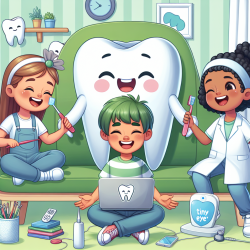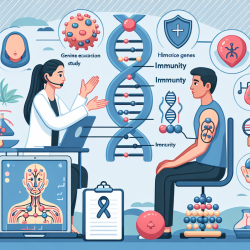In the evolving field of speech-language pathology, continuous professional development and staying abreast of the latest research are crucial for providing optimal outcomes for children. The article "Our Medical Debt to France" by Guy Hinsdale, M.D., published in the Annals of Medical History, offers valuable insights that can be applied to enhance online therapy services provided by companies like TinyEYE.
Understanding the Historical Context
The article delves into the significant contributions of French medical advancements and their global impact. Understanding these historical milestones can inspire modern practitioners to appreciate the evolution of medical and therapeutic practices. Recognizing the historical context encourages a mindset of continual learning and improvement, which is essential for any practitioner dedicated to achieving great outcomes for children.
Key Takeaways from the Research
The research highlights several critical areas where French medical innovations have made substantial contributions. For online therapy practitioners, the following points are particularly relevant:
- Evidence-Based Practices: The article underscores the importance of using evidence-based practices. Implementing strategies that are backed by research ensures that interventions are effective and scientifically sound.
- Interdisciplinary Collaboration: French medical advancements often resulted from interdisciplinary collaboration. Encouraging collaboration among speech-language pathologists, educators, and other healthcare professionals can lead to more comprehensive and effective therapy plans.
- Innovation and Adaptability: The ability to innovate and adapt to new technologies and methods was a hallmark of French medical contributions. Online therapy services should continually seek to incorporate the latest technological advancements to enhance service delivery.
Practical Applications for Online Therapy Services
To translate these insights into practical applications, online therapy practitioners can take the following steps:
- Adopt a Data-Driven Approach: Use data to inform decision-making processes. Regularly assess the effectiveness of therapy interventions through data collection and analysis. This approach ensures that the services provided are continually improving and tailored to meet the specific needs of each child.
- Foster a Culture of Collaboration: Create opportunities for interdisciplinary collaboration. This could involve regular meetings with other professionals involved in a child's care, sharing insights, and developing integrated therapy plans.
- Embrace Technological Advancements: Stay updated with the latest technological tools and platforms that can enhance online therapy services. This might include using advanced teletherapy platforms, incorporating interactive and engaging digital resources, and utilizing data analytics tools to track progress.
Encouraging Further Research
While the article provides a wealth of information, it also highlights the importance of ongoing research. Practitioners are encouraged to engage in further research to stay current with the latest developments in the field. By doing so, they can continue to provide high-quality, effective therapy services that are grounded in the latest scientific evidence.
Conclusion
Incorporating the insights from "Our Medical Debt to France" into online therapy practices can significantly enhance the quality of services provided. By adopting evidence-based practices, fostering interdisciplinary collaboration, and embracing technological advancements, practitioners can create better outcomes for children.To read the original research paper, please follow this link:
Our Medical Debt to France.










